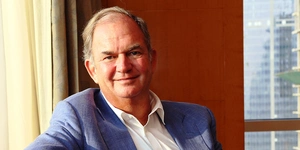The single biggest source of worry across most professionals today is inadequate financial security and poor financial management. This is primarily due to insecurity over jobs, gloomy economic prospects, and life struggling to limp back to normalcy.
To resolve this quandary, this column leverages principles from Japanese culture to build an effective financial portfolio. Japanese culture is leveraged upon sustainability, longevity, humility, and quality—exactly what most working professionals crave for today.
Don’t be ashamed of wealth creation
Buddhism, one of the major religions in Japan, advocates that individuals need not be ashamed of or feel guilty about wealth creation. It is not morally inappropriate to try to create immense wealth. The only folly individuals should be careful about is not to be enslaved by that desire or to lead a life with the single-minded focus on wealth creation or excessive flaunting.
Imbibe financial minimalism, the Japanese version of it
A derivative of the above principle is Japanese minimalism—or having things that are absolutely necessary and removing all forms of clutter from one’s life. A direct analogy to financial portfolio management involves avoiding having too many investments in each asset class. In case of investing in a debt asset class, one or two low-risk debt instruments should suffice rather than a dozen of them. Similarly, with equities, one or two mutual funds should suffice for domestic and international markets. This also applies to other financial habits, implying that having one or two credit cards and one or two bank accounts only.
Wabi-sabi, leading a perfectly imperfect life
The principle of wabi-sabi (wabi implying rustic simplicity and sabi implying taking pleasure in the imperfect) corresponds to accepting imperfections in life, making the most out of them, and moving on. It is only natural that everyone has made bad investment choices by acting upon a tip from a seemingly credible source or making an investment in a lucrative penny stock or investing in illiquid real estate. Some of these bad investments are commonplace for almost all individuals and it is essential to embrace these mistakes and move on. Rarely does anyone get all their investment decisions correct. It is detrimental to perennially live with a deep sense of financial regret. However, over a period, the proportion of risky investments (including equity) should be consciously brought down and relative safety of the portfolio should be consciously increased.
Avoiding karoshi, that is death caused by overwork
Karoshi or death due to overwork is one of the negative elements of Japanese culture. In financial parlance, it translates to being excessively obsessed on the financial returns leading to hourly portfolio tracking. It is highly advisable to avoid reading too many hot tips or opinion pieces (except mine, of course!) and following the hyperactive journalists screaming all day on television promising you financial nirvana. Too much churn or regular tracking only adds to daily misery. It is suggested to track your portfolio once a year, at best, and avoid making too many transactions.
Follow your Ikigai; wealth is only an enabler after all
Ikigai, the famous Japanese concept, translating to living your purpose every day is one of the biggest exports of Japanese culture. At the end of the day, pursuing money can rarely be someone’s Ikigai as it leads to a very shallow and meaningless life. Ideally, money should be treated as an effective enabler while the individual follows his Ikigai—an intersection of what someone is good at, what he enjoys, what the world is ready to pay for, and what the world needs, ruthlessly.
Finally, the most important tenet in building robust financial management is to practice negative visualisation as preachers of Stoicism advocate. Stoicism, as a branch of religious studies, originated in Greece and Rome, but has managed to permeate throughout Japanese culture. The concept of negative visualisation, rigorously practised by businessmen and sportsmen the world over, refers to training your mind to answer the worst possible scenario, so that you are calmer about handling any difficult situation that comes your way.
So, go ahead and ask your mind, “What will happen if you lose 80% of your wealth overnight?” and hopefully you will start sleeping better like the centenarians in Okinawa do.
Views are personal. The author is an MBA from IIM Bangalore and a strategy course holder from INSEAD. He has been a strategy consultant for over a decade. He is the author of three books, ‘Yours Sarcastically’, ‘Satan’s Angels’, and the upcoming ‘Hacks for Life and Career: A Millennial’s Guide to Making it Big’.










Leave a Comment
Your email address will not be published. Required field are marked*